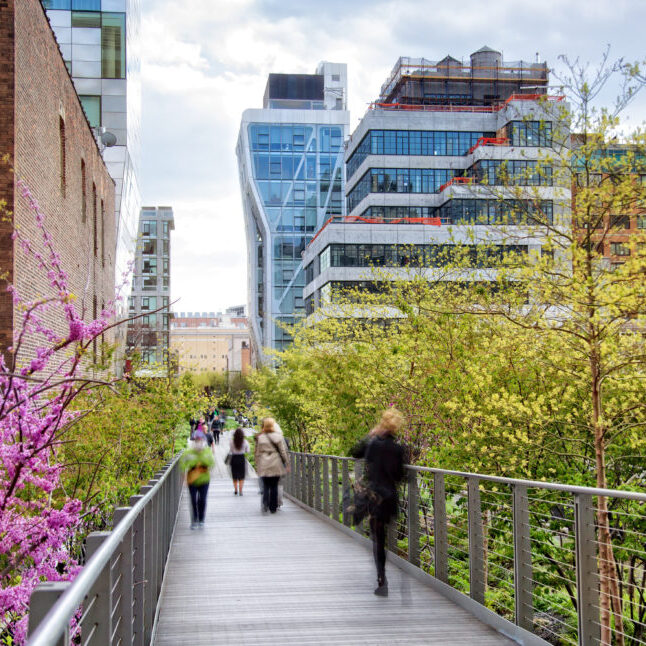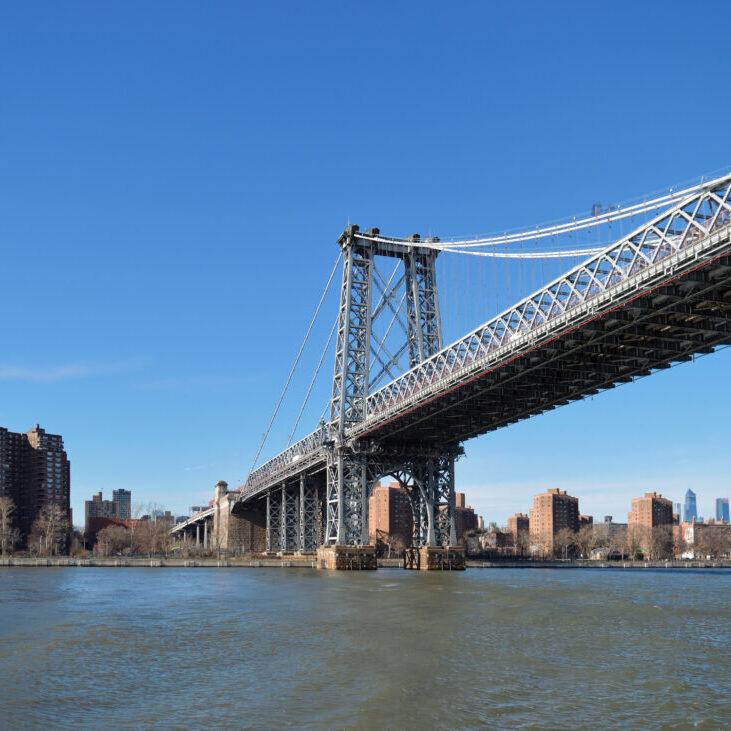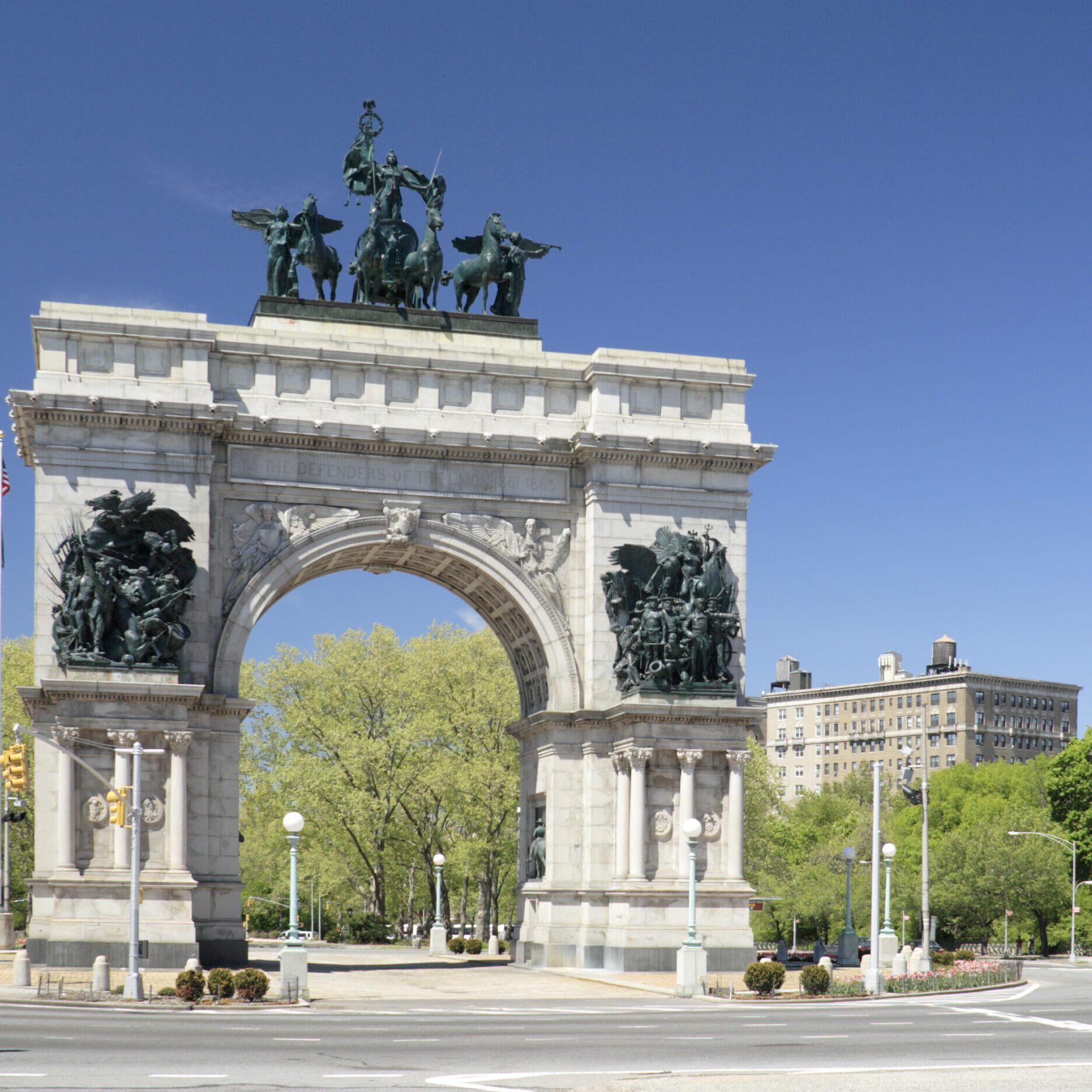A guide for first-time apartment renters in NYC
Are you a first time apartment renter in New York City? With a real estate landscape as diverse as the city itself, New York’s rental market can be daunting. Renting an apartment in NYC is not just about securing a place to live; it's about making a lifestyle choice that fits your personal and financial needs.
Get an insiders edge on your apartment hunt.
How to find an apartment in NYC
Starting with the right neighborhood is key to finding an apartment in NYC, especially for a first-time apartment renter. Here's what you should consider when evaluating your prospective location:
- Proximity to work or school: Consider the commute time from your potential new home to your workplace or school. Research the available transport options and consider their cost and reliability.
- Local amenities: Identify the amenities you frequently use, such as grocery stores, pharmacies, restaurants, or parks, and check their proximity to the potential apartment.
- Neighborhood atmosphere: Spend some time in the neighborhood at various times of the day and week. Is it lively or quiet? Does it feel safe? Does it match your lifestyle and preferences?
- Proximity to public transportation: In NYC, being near a subway station or bus stop can make life significantly easier. How close are these to the potential apartment?
- Parking: If you own a vehicle, understand the parking situation in the neighborhood. Is there a parking garage nearby? If on-street parking, how difficult is it to find a spot?
With this checklist at your disposal, it'll be easier to assess if a neighborhood aligns with your lifestyle and preferences. Remember, it's not just about finding an apartment; it's about finding a community where you feel at home.
Key things to consider as a first-time apartment renter
Once you've narrowed down your preferred neighborhood, the next step is to critically assess potential apartments. Here's a comprehensive checklist to guide you:
- Apartment floor plan and size: The apartment should comfortably accommodate your household and lifestyle. Consider the number of bedrooms and bathrooms, the size and layout of common areas and the availability of storage space.
- Price: Does the asking rent fit comfortably within your budget? Keep in mind the additional costs such as utilities, maintenance fees, and renters' insurance.
- Amenities: Does the apartment come with essential amenities like heating and air conditioning, laundry facilities and a fully equipped kitchen? If the building has additional amenities like a fitness center or rooftop deck, even better!
- Condition of the apartment: Check for any visible damage, pest issues or maintenance concerns. If you spot anything, bring it to the landlord's attention before signing a lease.
- Lease terms: Familiarize yourself with the lease duration, renewal policies, potential rent hikes, and any consequences of an early exit. Additionally, inquire about subletting permissions and weigh the advantages and drawbacks of 1-year vs. 2-year leases.
- Pet-friendly apartments: If you have pets or plan to get one, it's essential to understand the building's pet policy. Are pets allowed, and if so, are there restrictions on breed or size? Are there additional costs associated with having a pet?
- Noise levels: Consider the potential noise levels in and around the apartment. Can you hear your neighbors? Is it located near a busy street or a nightlife area that could be noisy?
- Safety and security: Check the security measures in place. Are there secure locks on the doors and windows? Is there a doorman or a security system in place?
Preparing for NYC apartment showings
Navigating NYC's rental market requires foresight and preparation. Here's a concise guide on how to rent an apartment in NYC through visiting apartment showings
- Documentation essentials: Prepare and organize these in a folder to carry with you.
- Identification: A valid government-issued photo ID.
- Income Proof: Recent pay stubs and an employment letter. For the self-employed, tax returns and an income statement signed by a CPA work well.
- Bank Statements: The last two to three months usually suffice.
- References: Prior landlord recommendations can bolster your application.
- Credit Report: Most landlords will run a soft credit check.
- Plan out your apartment showings: A strategic approach ensures you’ll find the ideal space
- Plan ahead: Begin your search 30-45 days before your move-in target. This cushion allows a thorough exploration without rush-induced decisions.
- Weekday visits: Opt for weekday showings when possible, as they're typically less crowded than weekends.
- Maintain records: A quick note on each apartment’s specifics (address, rent, pros, cons) can help in decision-making.
Embarking on the NYC apartment hunt can feel overwhelming, especially as a first-time apartment renter. But with this guide to how to rent an apartment, you’ll have the right tools and strategies at your disposal. Remember, it's not just about finding a space to reside in but a place that harmonizes with your lifestyle and aspirations. Equip yourself, plan ahead and soon you'll be calling a slice of the Big Apple your own.






